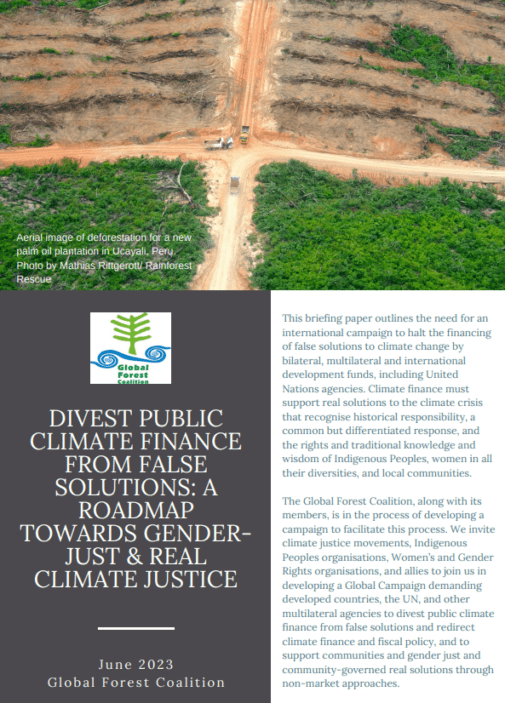The Food-fuel Conundrum – Have We Been Bio-fooled?
One of the central issues in the biofuel/agrofuel debate is the question of whether bio-based fuels made from food crops such as maize, sorghum, cassava or even oil palm and sugar cane, can be considered acceptable or not, on the basis that their cultivation for that purpose might in some way impact negatively on food sovereignty and food security.
From the promised ‘marginal land’…
Initially, agrofuels were criticised on the grounds that they would very likely displace food crops from productive land, but the assurance was given that agrofuel crops such as Jatropha would be grown on ‘marginal lands’ as they would not require fertile soil or much water. However, it soon became clear that this was not true, and that – in order for it to be economically productive – even Jatropha trees would need to be grown under normal agricultural conditions, with a good natural water supply or under irrigation, as well as with fertilisation and chemical pest control measures.
Once the truth had been revealed, advocates of agrofuels tried to obfuscate the issue by making the simplistic assertion that if agrofuels were produced only from non-food crops, there would be no negative impact on food production and availability. This needed to be strongly challenged because there is no valid justification whatsoever for that claim. In reality, it makes absolutely no difference which crops might be used to produce agrofuels. What does matter – and that will make the difference – is the type of land which is taken for the purpose of growing agrofuel crops, and how converting it to growing fuel crops will affect biodiversity, soil and water resources, and therefore the food sovereignty of local communities.
The area of arable land available is finite, and it is therefore logical that if any of this resource is put to agrofuel crops, there will be less land available for food production. Thus when agrofuel proponents and producers argue that their ‘renewable’ products will not impact on food production or availability, it needs to be known that this is nothing more than a devious distortion of the truth. Growing non-food agrofuel crops in an economically sustainable way requires the same suitable conditions and resources in respect of soil fertility and water availability as normal food crops. Therefore even if all agrofuels were to be made from mainstream food crops instead of from controversial and potentially invasive non-food species, it would make very little difference.
… to a threat to food security
It follows that any plant species – whether a food crop or a potentially invasive non-food plant such as Jatropha or Castor Oil – grown to produce agrofuels, will have much the same impact on food sovereignty. It is the additional demand for well-watered fertile land arising from demand for agrofuels that is at the heart of this confusion. This fact needs to be fully acknowledged and properly responded to both by governments and relevant international bodies, including the CBD, the UNFCCC, the UNFAO, and the UN Committee on World Food Security.
Thanks to the false claims made by agrofuel companies and their ever-greedy consultants, policy makers in the EU and the US have been influenced to introduce socially and environmentally harmful agrofuel production and blending targets. These have led to an avalanche of land grabs, community displacements, and the destruction of biodiversity-rich habitats in countries throughout the developing world.
Wally Menne, Global Forest Coalition
This article was originally published in ECO issue no.44, the newsletter of the CBD Alliance http://www.cbdalliance.org/







